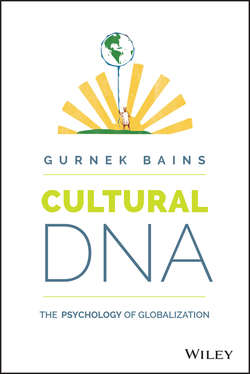Читать книгу Cultural DNA - Bains Gurnek - Страница 13
На сайте Литреса книга снята с продажи.
Chapter 1
America – The Change Makers
ОглавлениеAmerica today is still the world's most powerful country, both in terms of the size of its economy and its military muscle. Even more important than this, however, is the soft power that the country exercises. In particular, after America and its allies won the Cold War, there was an implicit sense in many parts of the world that American values and ideals would become the global norm. It was this sense that persuaded the political economist Francis Fukuyama to prematurely call out the End of History, on the basis that fundamental debates about values were over and we were all marching toward an American future whether we recognized it or not.26
The American model also seemed to have triumphed in business. The idea that free markets should create the champions of the future through Darwinian selection became widely embedded. Other notions took hold, too: push relentlessly for ever higher targets and differentiate aggressively on the basis of performance; never rest from change; let companies outsource to the lowest cost providers around the world. American executives who went abroad did so on the front foot and led predominantly through American leadership values. The country's business schools were also teaching leaders from around the world how to manage their companies and American heroes, such as Jack Welch and Louis Gerstner, were the doyens of the global business community.
Just a few decades later, however, the world looks very different. American business values are no longer the default setting for executives around the world. The global financial crisis that struck in 2007 has had a particularly significant impact on the credibility of the American business model. A short while ago, America's banks, ratings agencies and insurance companies were seen as highly sophisticated operators in complex markets. Now many believe they had either no idea of what they were doing or were malevolently self-serving – neither judgment is flattering. While the American reward culture has created enormous wealth for some, many feel senior leaders have been excessively rewarded, often for indifferent performance. The model is also under question internally. Decades of economic growth have barely touched the living standards of the bulk of the American population and there is a sense of weariness and latent resentment among many in the workforce. Outsourcing may have benefited company profits – but whole sectors of American society have lost out or live on the precipice of insecurity.
American leaders wrestling with lower economic growth at home must think globally, now more than ever before. However, they can no longer go around the world simply teaching other people how to sing the American business tune. They have to adjust to a multipolar business world with all its complexities and contradictions. This requires American leaders to understand other cultures and flex their own approach as never before. On a day-to-day level, an American executive has to deal with a bewildering range of nationalities either within a firm or in global markets. Increasingly there is a good chance your boss will be from a culture with which you have had only fleeting experience before.
More generally, America has lost its sense of omnipotence. People around the world instinctively recognize that other ideologies and values for how life should be organized are now on offer. In America itself, this has created a sense of ambivalence and uncertainty. American exceptionalism has always been deeply rooted in the national psyche; as such, the idea that others could genuinely overtake the country – rather than pretend to and then fade away, as did the Soviet Union or Japan – causes disquiet. America is in an uncertain mood where, psychologically, a lot of things are up in the air. The rest of the world is equally uncertain as to how Americans will adjust to a new multipolar world. Which of the myriad of potentially conflicting values that constitute its cultural soup will get stronger and which will get weaker?
Конец ознакомительного фрагмента. Купить книгу
26
Francis Fukuyama, The End of History and the Last Man (London: Penguin, 2012).
